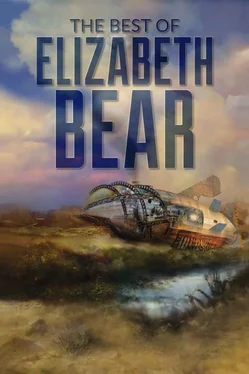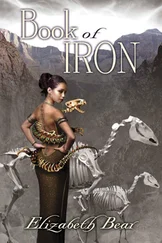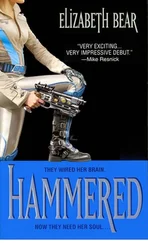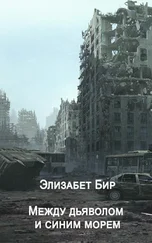I cantouch the notebooks. I can always touch the notebooks.
But they don’t go back far enough. They don’t have the thing that mattered in them. That had happened before. The thing that I can’t remember.
The thing that had happened and been burned.
The thing I use my new old echo of a pen now to write about.
With theone before him, I never argued. We never made enough demands on each other to have anything to fight about.
With him, I think I fought all the time. I remember… screaming matches. I remember arguments that made me doubt my sanity. I remember him telling me I said things I couldn’t remember saying. I remember letting him win because I couldn’t keep track of where the goalposts were, and because I never learned to argue to win.
I never learned to take up space in other people’s lives.
I wishI had known to be wary of the urge to crystallize my identity, to declare myself a thing—one thing, or another—and not accept that I was a continuity of things that would always be changing.
I might have been less eager to discard the thing I had been to become something new if I hadn’t been so afraid that acknowledging the old thing meant being trapped for all time. If I hadn’t been so afraid the people who knew me would never let me change, I might have held on to more of them, instead of shedding whole lives like a snake sheds skins.
Of course, sometimes people won’t let you change. Because their self-image is bound up with yours, and they’re afraid of challenging themselves too. Or because they want to keep you weak so they can own you. Or because their own identity gets stuck on you being and behaving a certain way. It’s a cliché to say that alcoholics and addicts often find they need a whole new suite of friends of when they get clean, and their lives no longer revolve around getting altered anymore.
But the thing is, over time, changes just become part of the status quo. Tattoos that marked a milestone or a rebellion to our younger selves soften into our skin, become unremarked. They become a part of us, a part of our image and who we are.
What is mine, and what is not mine—our conception of these things changes as we grow.
I movedaround a lot. As an adult, and as a child. I didn’t have any place that felt like mine.
Until I met him. Until I met Joshua.
I writethe name, and look at it, and know that it is right. I should be giddy with triumph. Blazing with the endorphins of having figured something out.
I feel hungry, and dizzy. And tired.
I wassitting in a booth at the airport, crying on the phone. “I wish you had just shot me,” I said.
At the time when I said it, it was true.
Joshua was telling me about the girl he’d met. The girl who was helping with his plans. The girl who would be taking over for me, he said, so that I could get some rest. Get my head together.
Get back to being right with the revolution.
I asked her name. He told me. She was somebody I knew. I asked if I could come back after Thanksgiving with my mom. He said if I got right, I could. He said that my leaving to see my family had been a mistake, and I would have to make amends for it.
“You can’t do this to her,” I said. “She’s just a kid. She doesn’t know she’s giving up her whole life.”
She was the same age I had been, eight years before. I was a wizened old woman of twenty-seven.
“Come back,” he said. “Forget about your mother. We can talk. That other girl doesn’t have to be involved.”
My mom, who I had not seen in four years because of Joshua, was dying. I reminded him of that. He reminded me that if I were a good revolutionary, that wouldn’t matter. “Anyway, remember what her husband did to you.”
How could I forget?
I have since, largely, forgotten.
He hung up. I remember thinking, very clearly, he’ll use her up the same way he used up me.
I wish I could say that thought is the thing that motivated me. I wish I could say that was the last time I ever talked to him.
I sat there and cried for another hour, until I had to get up to make my connection. Nobody bothered me. People cry in airports so often, it’s not much of a spectacle. These days they cry and shout into their cellphones just about anywhere. Back then, the crying and shouting were more localized.
Halfway to the gate, I stopped. I walked back to the phones. The young woman he’d replaced me with was a sophomore. Nineteen years old. I knew her name and where she came from.
I called her family.
“You daughter joined a cult in college,” I told them. “You need to get her home.”
I hung up. I ran for my gate.
I just barely made my plane.
We havethis idea that healing comes as an epiphany.
We have it in part because epiphanies are narratively convenient. They’re tidy for a storyteller; there’s a break point, a moment when everything changes. An identifiable narrative beat. A point at which everything before is one way, and everything after is different. They’re satisfying. They provide catharsis and closure.
Frustratingly, in real life, you often have to go back and have the same epiphany over and over again, incrementally, improving a tiny bit each time. Frustrating for you. Frustrating for your loved ones.
It would be nicer if you could just have that single crystallizing incident, live through it, and get on with being a better human being who was better at humaning.
It’s comforting to the afflicted to think we only have to make one change, and we can better. Boom, all at once. Wouldn’t it be nice if roleplaying or primal scream therapy or rebirthing therapy or a hot uninhibited fuck or a midnight confession or a juice cleanse or a confessional essay or a cathartic piece of fiction really could heal all the old damage just like that? In one swoop? Wouldn’t it be nice?
Sure.
Of course it’s nonsense, like so many other narratively convenient things we learn about from stories. But like so many of the things we learn about from stories, it’s useful nonsense.
And epiphany isn’t going to fix us. Maybe nothing is going to fix us. But recognizing the damage might help us route around it. Which isn’t nothing, you know?
The truth is that you never get to stop dealing with the damage. You might get better at it. You might find a lot of workarounds and you might be happier—or even happy, inasmuch as happiness is a state and not a process!—but happiness doesn’t just happen . And it doesn’t happen instantly. But incrementally, with a lot of constant effort and focus.
Читать дальше













